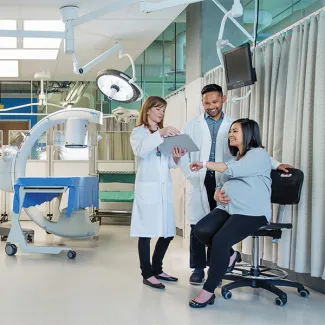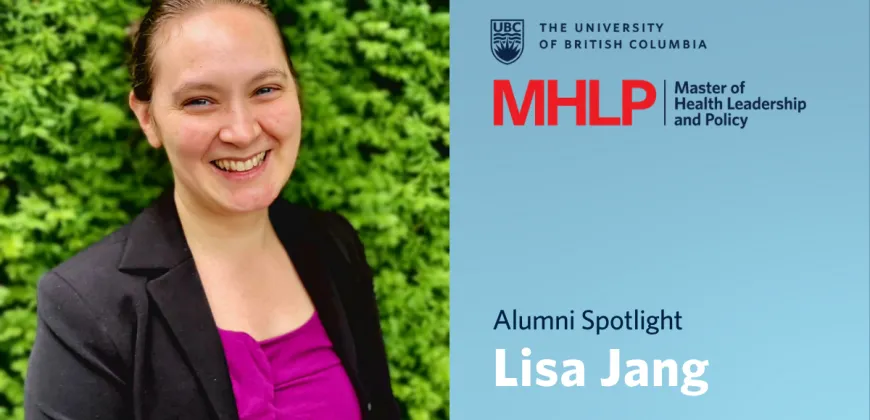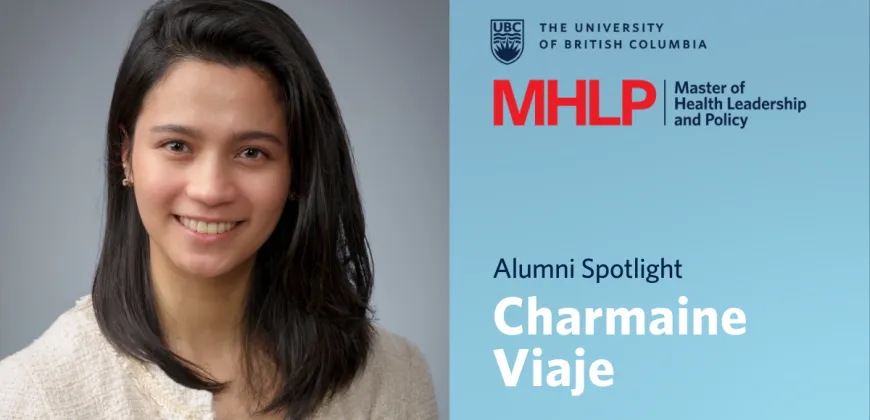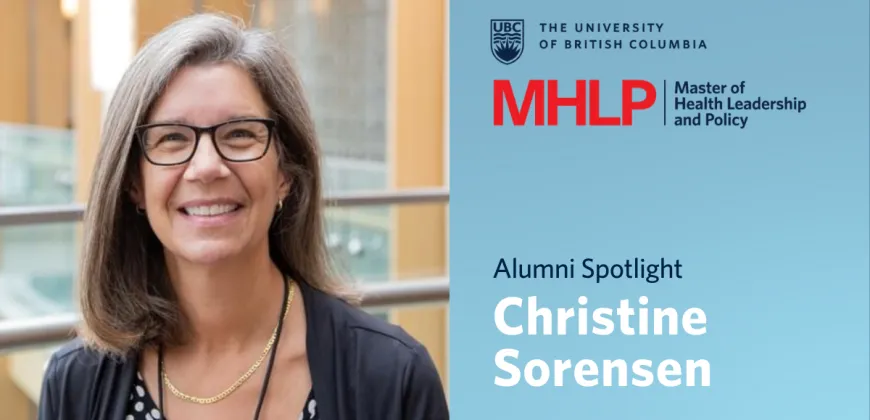Alumni Spotlight: Joanas Wong
After graduating with an MHLP degree in Clinical Education, Joanas Wong is now facilitating development of decision support tools and guidelines for clinical practice – a role that draws on her many strengths in clinical practice and education.
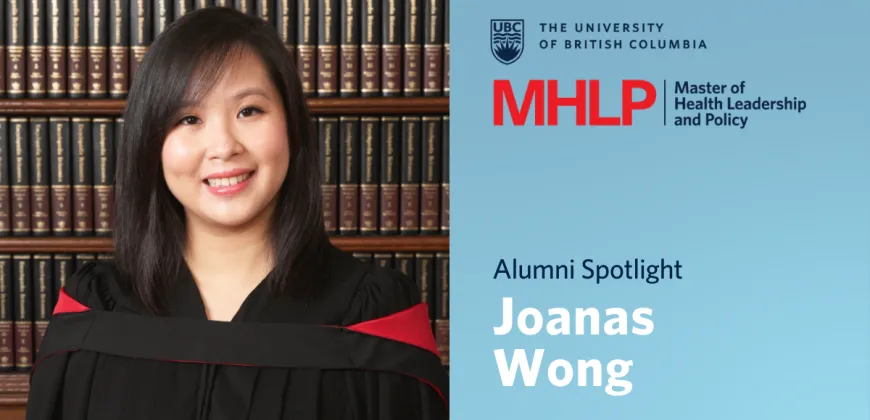
Before enroling in the Master of Health Leadership and Policy (MHLP) in Clinical Education program, Joanas Wong worked for eight years as an emergency room nurse and had several years of experience as a Clinical Instructor at the British Columbia Institute of Technology’s undergraduate nursing program, and then as Clinical Nurse Educator at UBC Hospital. She was looking for a graduate degree that would enable her to bring together her interest in teaching with her fascination with the operations side of health care.
“I knew I wanted to continue my educational path on the clinical education side, but I also knew that clinical education wasn’t the only route I wanted to take. I was really interested in operations and potentially other aspects of the health care organization, and so the MHLP – with its interdisciplinary model that includes courses in both health care and business – was very intriguing to me.”
In addition to the one-year duration of the program, Joanas was also pleased to find out that courses were grouped together over two days each week, as this allowed her to go to school full time while working three days a week.
A well-rounded curriculum
Joanas says her professional experience in clinical education often focused on developing topics and courses to address specific learning outcomes. One of her favourite MHLP classes – Curriculum Development in Clinical Education – enabled her to take a broader view of curriculum development.
“It was an opportunity to apply all the theory we were learning and use it to develop a mock curriculum,” she says. “It allowed us to better understand all the intricacies and considerations that go into this work.”
The health policy class was another memorable standout, offering valuable insight into the connections between health policy and the delivery of care in clinical settings.
“This course provided a platform for me to explore some controversial political issues that were always intriguing, but I never had the opportunity to study further or consider solutions for.”
Students in Clinical Education complete a practicum, and Joanas worked with the Regional Simulation Team at Vancouver Coastal Health over the summer of 2019. She was responsible for designing a workshop – and its supporting resources – that used simulation strategies to evaluate latent safety threats and inefficiencies at workspaces. Not only did she consolidate some of the skills she learned from the MHLP curriculum, but she also had the opportunity to learn from her mentor to design resources in a way that stimulated learning more effectively.
Joanas says the business and leadership courses that make up about 30% of the MHLP curriculum both validated her approach to leadership and challenged her to see things in new ways.
“The incredible amount of group work we had to do in these classes also improved my communication and leadership skills,” she adds.
“We were constantly put into teams and had to work with people who had very different professional backgrounds. You soon learn how to leverage on each other’s expertise.” She also found it very inspiring to learn business concepts from the project management and operations management classes and then apply them in the health care environment.
New confidence in a new position
After graduating in December 2019, Joanas was hired as the Regional Practice Initiatives Lead in Professional Practice at Vancouver Coastal Health. She is responsible for collaborating with multidisciplinary teams, including representatives from other health organizations, to develop decision support tools to guide practice and support clinical services.
Recently, for example, she helped to develop standard operating procedures to apply infection prevention and control measures to support teams who respond to emergent aggressive behaviour during the COVID-19 pandemic. This required input from multiple teams and disciplines, in which she provided guidance to the development team and facilitated the process to solicit feedback. With the shifts in health-care delivery required because of the COVID-19 pandemic, the development of guidelines to support clinical teams in their new practices and workflows required Joanas and her teammates to facilitate processes that were rigorous but agile. The demanding workload and team communication skills practiced through the MHLP program prepared her well for this.
“In health care, we often become experts in our field first, and then feel confident teaching what we know to others,” she says. “The MHLP has taught me to be comfortable and confident facilitating team communication and discussion, even if I don’t have expertise in that particular area.”
–
Take the steps to join the next cohort of healthcare leaders. If you haven’t already, assess your eligibility and sign up for the upcoming information session to learn how to submit a strong application. Learn more about this innovative master’s program:
